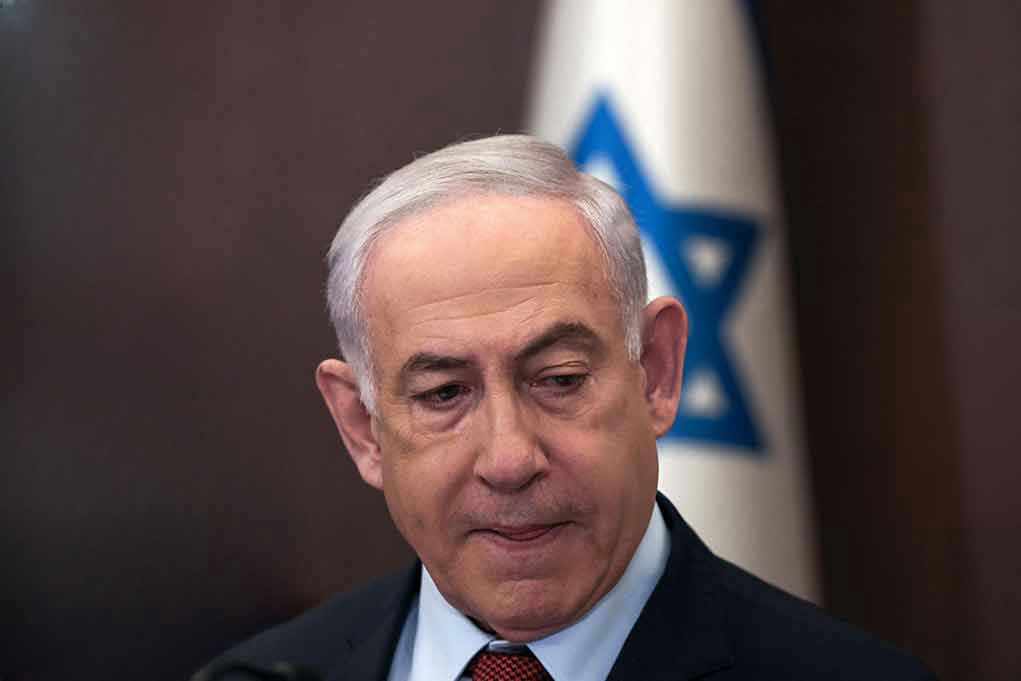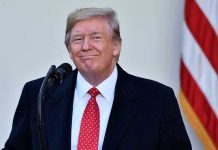
Tucker Carlson’s explosive accusations that Israeli Prime Minister Benjamin Netanyahu “controls” American politics and President Trump have ignited a firestorm that exposes dangerous fault lines within conservative media and threatens to mainstream antisemitic conspiracy theories.
Story Highlights
- Carlson accused Netanyahu of exploiting conservative activist Charlie Kirk’s murder for political gain despite FBI finding no Israeli involvement
- The former Fox News host suggested Israel exerts undue control over U.S. policy and Trump, sparking widespread condemnation
- Jewish organizations and conservative leaders including Ted Cruz denounced Carlson’s remarks as antisemitic conspiracy-mongering
- The controversy reveals deepening divisions within the American right over Israel policy and foreign influence
The Inflammatory Memorial Speech That Started It All
Charlie Kirk’s murder became an unexpected flashpoint when Carlson delivered incendiary remarks at the conservative activist’s memorial service. The FBI had already charged Tyler Robinson with Kirk’s killing, finding zero evidence of Israeli involvement. Yet Carlson used the solemn occasion to launch a blistering attack on Netanyahu, accusing the Israeli leader of “hijacking” Kirk’s memory for political purposes
Carlson’s comments quickly escalated beyond the memorial, spreading across his media appearances and social platforms. He didn’t just criticize Israeli policy – he employed coded language and historical tropes that Jewish advocacy groups immediately recognized as dangerously familiar antisemitic rhetoric. The timing and venue made the accusations particularly inflammatory, transforming a murdered activist’s memorial into a political battlefield.
Netanyahu’s Direct Response and Conservative Backlash
Netanyahu fired back decisively, posting a video statement on September 18 that honored Kirk while firmly denying any Israeli involvement in his death. “Charlie Kirk was a great man who deserves honor, not lies,” the Israeli Prime Minister declared, directly challenging Carlson’s narrative. The response wasn’t just diplomatic – it was personal, with Netanyahu clearly understanding the stakes of allowing such conspiracy theories to take root.
The conservative establishment quickly chose sides, and it wasn’t with Carlson. Senator Ted Cruz rejected the former Fox host’s claims outright, emphasizing Kirk’s well-documented opposition to antisemitism. Mark Dubowitz from the Foundation for Defense of Democracies called Carlson’s narrative “distressing,” particularly noting how dramatically it contrasted with his earlier pro-Israel positions. The speed and unanimity of this conservative pushback revealed just how far Carlson had crossed established red lines.
The Antisemitic Tropes Hidden in Plain Sight
Jewish organizations didn’t mince words in their analysis of Carlson’s rhetoric. Stop Antisemitism, Jewish Insider, and other advocacy groups identified specific language patterns that echoed centuries-old antisemitic conspiracy theories about Jewish control of governments and media. These weren’t subtle dog whistles – they were explicit references to “blood libel” myths and foreign manipulation narratives that have historically preceded violent persecution.
The controversy gains additional context when viewed alongside Carlson’s previous statements, including interviews with Holocaust deniers and promotion of Epstein-Mossad conspiracy theories. Media scholars warn that this type of coded language serves to mainstream dangerous ideas by wrapping them in seemingly legitimate political criticism. The pattern suggests a deliberate strategy rather than accidental rhetoric, making the conservative backlash even more significant.
Fractures in Conservative Unity Over Israel
This incident exposes deeper tensions within the American right that extend far beyond one media personality’s inflammatory comments. Traditional pro-Israel conservatives find themselves defending a relationship that has enjoyed bipartisan support for decades, while populist voices question foreign influence more broadly. The Gaza conflict and changing demographics within the Republican coalition have only intensified these debates.
The long-term implications could reshape American foreign policy if these divisions continue to widen. Jewish communities face renewed anxiety as antisemitic rhetoric gains platforms in mainstream conservative media. Meanwhile, Israel’s supporters worry that conspiracy theories could erode the broad-based political support that has underpinned the U.S.-Israel relationship for generations. The controversy serves as a crucial test of whether conservative leadership can maintain principled positions against the pull of populist conspiracy theories.




